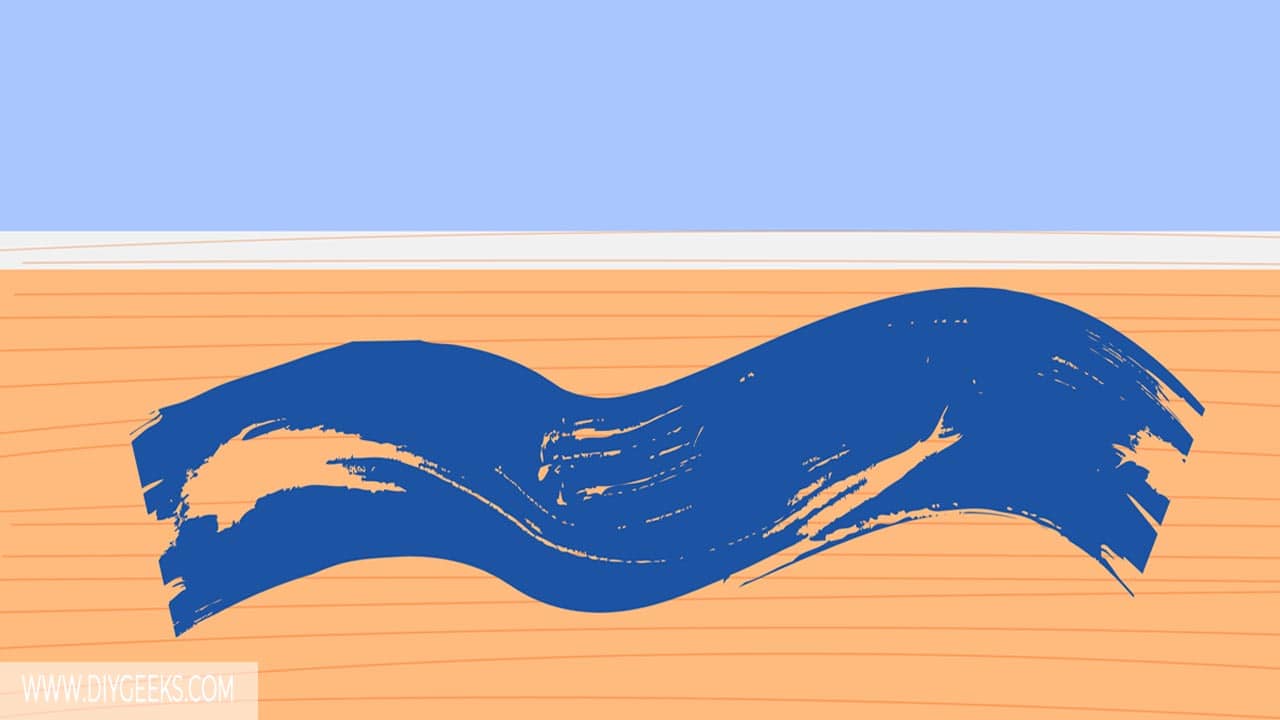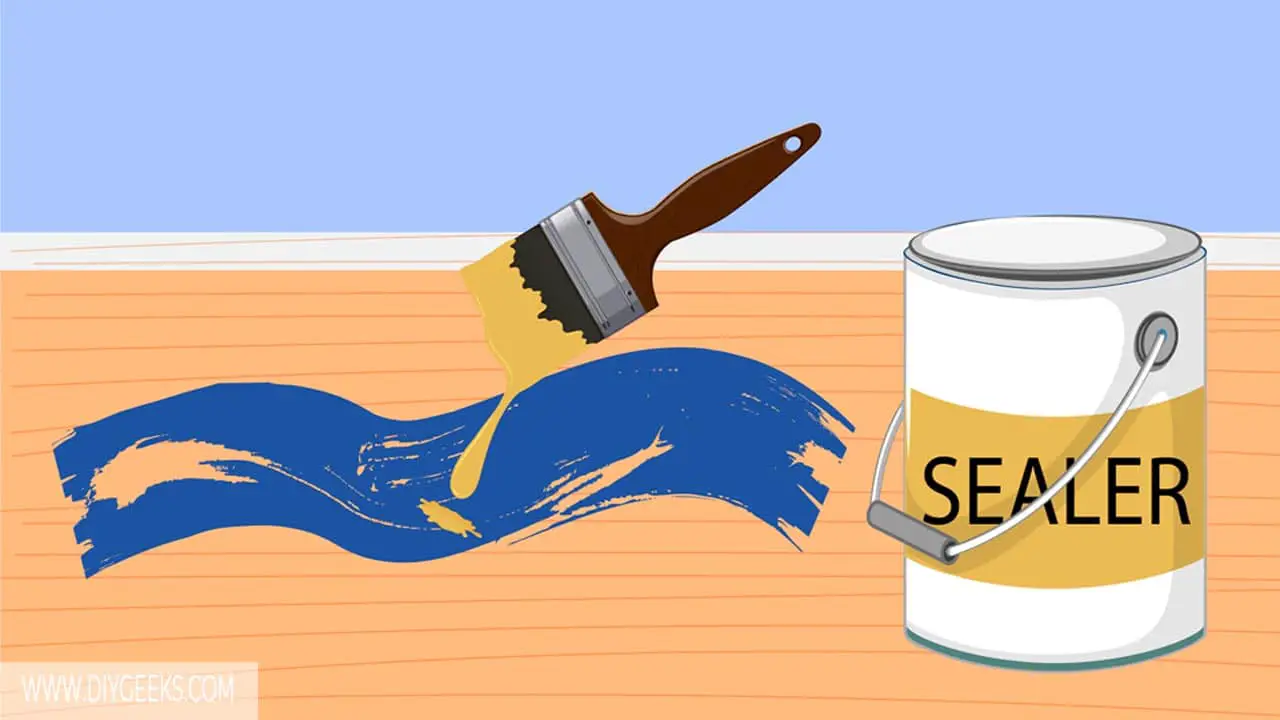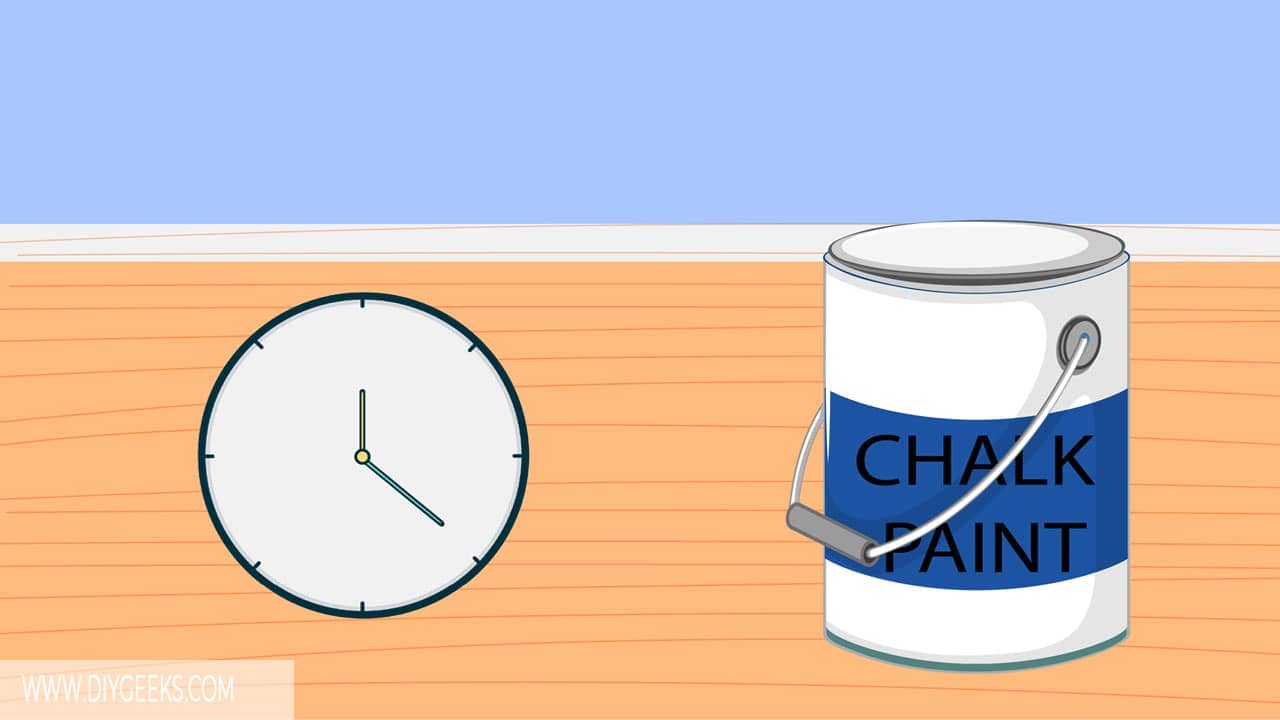Chalk paint is durable for indoor decorative surfaces, but the paint will get washed off if applied outdoors or exposed to constant water or handling.
Chalk paint has a simple formula that contains no extra protective additives and produces a water-soluble finish.
In summary, chalk paint is a decorative paint and not a protective paint.
Does Chalk Paint Scratch Easily?

Chalk paint does scratch easily if it’s unsealed as it doesn’t have a protective layer that protects it from scratches, water, or other damage.
Chalk paint is water-based, doesn’t have a glossy finish, and isn’t formulated with protective additives that make its finish durable or resistant to scratches.
The low durability of the chalk paint isn’t a bad thing as you can get a distressed (vintage) finish if you sand (or scratch) it. So, the paint is mostly used to achieve a distressed finish.
Sealed chalk paint doesn’t scratch easily as the sealer will produce a glossy and scratch-resistant layer over the finish and protect it from different elements.
Does Chalk Paint Wear Off?
Chalk paint does wear off if it’s subjected to daily use or exposed to constant water as it doesn’t have a glossy finish or protective top layer to protect it.
Chalk paint is made of colorants (paint pigments), a binder (Plaster or Paris), and water. So, it has no additives that make the finish waterproof or resistant.
Chalk paint’s dry and textured finish attracts dust and filth, so you must clean it more often. Since you must clean it often with water, the finish will wear off after a while because it’s water-soluble. The more you clean it, the faster it wears off.
Chalk paint will last about 2 years if applied to decorative surfaces, such as picture frames, that aren’t exposed to constant water or handling.
Is Sealing Chalk Paint Necessary?

Sealing chalk paint for outdoor surfaces is necessary as the paint isn’t durable enough to withstand weather elements, such as rain. However, you don’t need to seal it for indoor or decorative surfaces.
Outdoor unsealed chalk paint will last about one (1) month only before getting washed off by rain or weather elements. In comparison, sealed chalk paint will last about 3 years outdoors.
A sealer will produce a transparent glossy and moisture-resistant top coat over the chalk paint and protect it from water, moisture, scratches, handling, and UV rays (some). To seal chalk paint, use wax, lacquer, or polyurethane.
The color shade of chalk paint doesn’t change as the sealer produces a colorless (transparent) finish as it doesn’t have paint pigments on its formula.
However, the chalk paint must dry fully (cure) before you seal it. If you seal it too soon, the finish will turn sticky or tacky, and you have to remove the entire finish.
How Long Does a Chalk Paint Finish Last?
Sealed chalk paint finish lasts about 5 years indoors and 3 years outdoors. Unsealed chalk paint lasts about 2 years indoors and 1 month outdoors.
Sealed chalk paint finish lasts longer as the sealer forms a glossy moisture-resistant layer over the finish and protects it from moisture, water, scratches, and other elements.
Unsealed chalk paint doesn’t last long outdoors as the paint is water-soluble and will get washed off if exposed to constant water or moisture.
To increase the durability of chalk paint, seal it with wax, lacquer, or polyurethane.
Related Read: Is Chalk Paint Waterproof?


